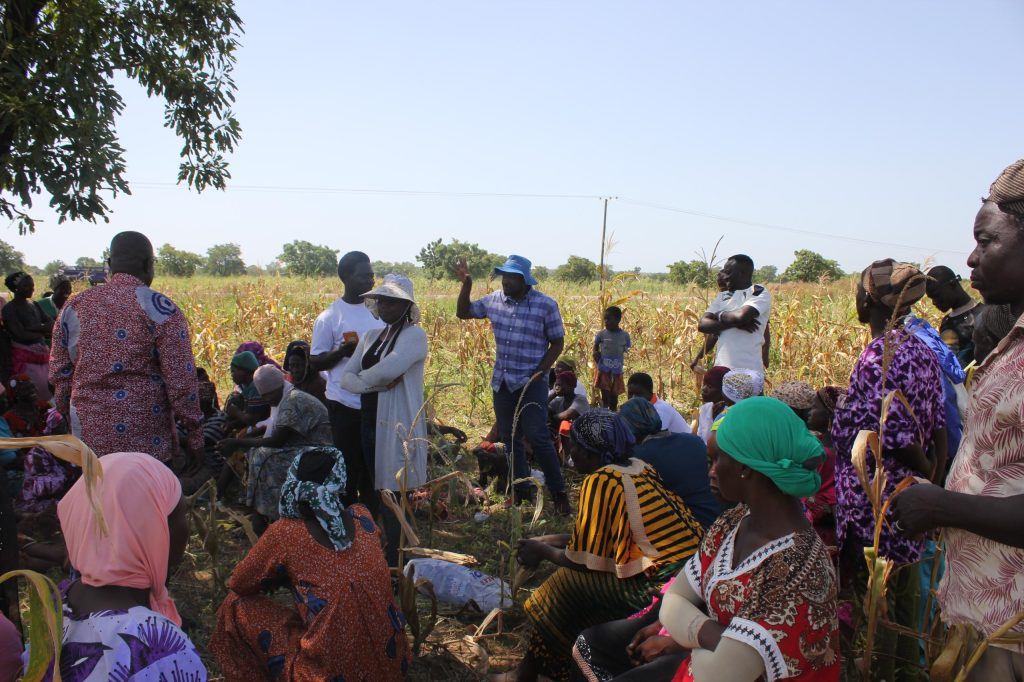By Albert Futukpor
Nyansung (N/R), Dec 23, GNA – The Council for Scientific and Industrial Research-Savanna Agricultural Research Institute (CSIR-SARI), in the face of a challenging 2024 cropping season, has taken bold steps to strengthen the country’s agricultural resilience through 20 impactful field demonstrations.
The 2024 cropping season was characterised by prolonged drought
The CSIR-SARI field demonstrations, were part of activities undertaken by the Early Generation Seed Consortium Project and supported by USAID through AGRA’s GIAT Programme, showcased improved hybrid maize and soybean varieties alongside best agronomic practices.
Between November 05 November 15, 2024, four field days were held at demonstration sites at Nyansung in the Northern Region, Janga in the North East Region, Naaha in the Upper West Region, and Tilli in the Upper East Region.
They attracted 215 participants with women comprising 51 per cent of attendees underscoring the project’s gender inclusivity.
Dr Gloria Boakyewaa Adu, Project Leader and Head of the Cereal Section at CSIR-SARI, in a media briefing, said “Collaborating with local seed producers, the Ghana Seed Inspection Division, and NGOs, CSIR-SARI is driving agricultural transformation by equipping farmers with the tools and knowledge needed to thrive under increasingly unpredictable conditions.”
The farmers expressed high praise for the resilience of the maize variety; CSIR-Kunjor-Wari, which emerged as the preferred choice in drought-affected areas.
Varieties such as Afayak and Favour also generated strong demand amongst the farmers reflecting their potential to enhance productivity even under challenging conditions.
Dr Adu expressed the need for farmers to prioritise drought-tolerant varieties in response to increasingly erratic rainfall patterns.
She said: “With drought-tolerant varieties, farmers can still achieve appreciable yields even during periods of drought safeguarding their livelihoods and food security.”

She said the field days reinforced the value of certified seeds and climate-smart agriculture, boosting farmer confidence and demonstrating how drought-tolerant, early maturing varieties combined with best agronomic practices, could mitigate climate challenges.
Mr. Abdul-Rashid Issah, a Seed Scientist at CSIR-SARI, spoke about the economic benefits of certified seeds over farmer-saved seeds saying certified seeds significantly enhanced yields, resilience, and income, linking farmers to reliable sources for the high-quality seeds.
GNA